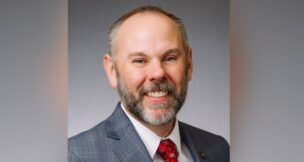Lawyers help employers navigate vaccine mandates in S.C.
Staff //September 17, 2021//
The Food and Drug Administration’s approval for the Pfizer vaccine has removed a major legal hurdle for companies looking to mandate COVID-19 immunizations as a condition of employment.
Until Aug. 23, the Pfizer, Moderna and Johnson & Johnson vaccines were only approved for emergency use authorization, giving further reason for people to stronghold their opposition, said David Dubberly, an employment and labor law group leader at Nexsen Pruet.
In the near future, Dubberly expects more businesses to create mandate policies, especially as Moderna is on its way to approval as well. Dubberly, along with S.C. Chamber of Commerce President Bob Morgan and other top labor lawyers in the state, came together on Aug. 26 to advise employers on what to expect should they mandate COVID-19 inoculations and how to respond — or not respond.
For now, companies such as Nephron Pharmaceuticals Corp. and S.C. hospital systems including Medical University of South Carolina, Tidelands Health, Roper St. Francis and East Cooper Health have all mandated that employees get vaccinated.
The city of Columbia mandated vaccines for employees on Sept. 7, two days before President Joe Biden announced sweeping vaccine mandates for federal employees and businesses with 100 or more employees.
More than 150 other health care systems around the U.S., as well as AT&T, Google, Bank of America and more, also have similar directives.
Mike Carrouth, a lawyer at Fisher Phillips LLP in Columbia, said employers should prepare for medical and religious exemption requests, protests and, most severely, people withholding labor.
Employers could potentially lose between 10% and 20% of their workforce, with people who feel strongly about the vaccine leaving a company or going to work for a competitor.
Carrouth counseled employers to be careful, remain calm and not fire someone simply because they don’t agree with their beliefs, given potential issues under the National Labor Relations Act and the National Labor Relations Board’s protected concerted activity guidelines.
“You can’t consider the employees’ actions to be inappropriate or insubordinate or in violation of a policy simply because you question the reasonableness of their opposition,” Carrouth said.
If an employee opposes a vaccine mandate, they have the right to leave.
“If they’re not going to continue working in those conditions, that’s their choice. That’s what the law allows them to do,” Carrouth said. “However, the law does not allow them with this PCA to come to work and disregard your mandatory vaccination policy.”
Kathy Dudley Helms, managing shareholder at Ogletree Deakins in Columbia, said the reason employers are able to mandate the vaccine, mask wearing, testing policies and other protocols are because the nation is in a pandemic and therefore under a direct threat, per the Americans with Disabilities Act. This could change when the pandemic ends, she added.
Since June, cases in the U.S. have increased from 12,000 a day to 130,000 as of Aug. 23, which Dubberly said is alarming and about half as bad as at the peak in January when cases reached 250,000 cases daily.
In late August, 62% of U.S. adults were fully vaccinated, putting the country in a “pandemic of the unvaccinated,” the Center for Disease Control said. That number reached 50% in South Carolina on Thursday, data from the S.C. Department of Health and Environmental Control show.
The three main vaccines, with two others in the pipeline, work against the four discovered variants of COVID-19. The rush to get as many vaccinated as possible comes amid the fear that a new variant could be stronger.
Should employers want to move forward with a mandate, which the Equal Employment Opportunity Commission gave the green light to do in May, Helms advised having a policy in place and communicating clearly with employees why you’re enforcing a mandate and why you think it’s important, in case employees push back, particularly with exemptions.
Employers have a legal obligation to provide an exemption for people who have disability-related reasons for not taking the vaccine or a sincerely held religious belief against getting vaccinated.
Unlike the flu shot that is egg-based and could see exemptions because of allergies, Helms said medical exemptions for COVID-19 should only be applicable to the smallest number of people.
“I’ve looked and looked and looked at this, and there really are no conditions where a person is prevented,” she said. “A lot of people said they couldn’t wear masks because of asthma, but if you pay attention, a lot of what you’re hearing is because of medical conditions. Physicians are saying go, go now and get a vaccination.”
Helms recently worked with an employer with had a 1,000-plus team members and saw zero medical exemptions and 20 religious exemptions, which she said speaks volumes.
“The religious exemptions are where everyone’s gonna go,” she said.
Religious exemptions come from Title VII, and state laws that can have further impacts.
For religious exemption, a “strongly held” belief doesn’t have to be an exact tenant of a church or even something an employer recognizes as a charge, Helms said. Employers are required to give religious exemption unless it causes direct threat, meaning it could cause harm to someone or undue hardship, such as having to relocate all staff members.
“Just because you don’t agree with someone and think their reality isn’t something to hang your hat on, you still go through the process,” she said.
Employees seeking accommodations can get forms from their physician and begin discussions about whether they can be reasonably accommodated without causing an undue burden. Accommodations include measures such as facemasks, social distancing, frequent testing or remote work.
But Helms stresses that employees do not get to choose their accommodation and can’t take it upon themselves to work from home indefinitely to avoid the mandate.
Helms added that it’s logical to look into questionable exemptions given situations like a preacher in California who has been writing religious exemption letters for anyone who asked.
“As you consider whether or not do to a mandate or some other kind of approach, you want to think through the messaging, you want to think through if you’re requiring a vaccination, who’s going to keep track of proof of the vaccine, how confidentiality is maintained,” Dubberly said.
For now, Dubberly imagines most companies will institute a hybrid model with vaccination requirements or incentives combined with mask wearing and other protocols.
The downside of a mandatory approach is the risk of losing employees, while the downside of the hybrid model is extra paperwork, he said.
“Employers have the ability to mandate vaccination. They have the right to require proof of vaccination in almost every state,” he said. Montana, where Gov. Greg Gianforte signed into law a bill making an individual’s vaccination status a protected category in May, is the only exception.
Helms suggests employers visit www.eeoc.gov and read section K of the article What You Should Know About COVID-19 and the ADA, the Rehabilitation Act, and Other EEO Laws.
t













